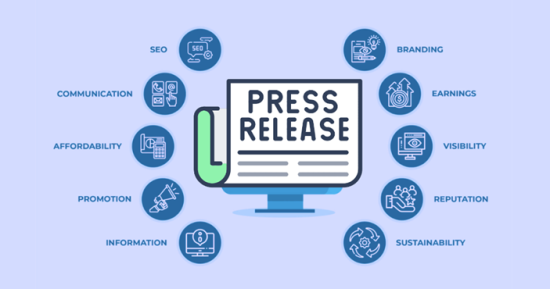
Did you know that over 80% of small businesses in the United States are acquired through some form of financing? Purchasing an existing business can be a strategic path to entrepreneurship, but it often requires a significant investment of capital. Fortunately, there are various financing options available to help aspiring business owners acquire the company of their dreams.
From business loans to investor funding, these options are all viable ways for aspiring business owners to purchase an existing business. If you’re not ready to buy an existing business outright, you have several funding alternatives, including business acquisition loans and seller financing. Depending on the asking price, you may combine two or more funding methods when buying a business. Each approach has pros and cons, so it’s best to do your due diligence and work with trusted accountants, attorneys, and business brokers.
Fortunately, an established business typically has financial statements, tangible assets, and an existing customer base. Lending partners will consider these factors and more as part of their approval process when you’re looking to get a loan to buy a business or take out a loan to invest in a business.
Introduction to Business Acquisition Loans
Buying an existing business can be an attractive option for aspiring entrepreneurs. Established companies often have a proven track record, existing customer base, and valuable assets that can make them appealing acquisition targets. By purchasing an existing business, you can benefit from an immediate revenue stream, established brand recognition, and experienced employees. Additionally, there may be tax advantages and economies of scale that come with taking over an existing operation.
Why Consider Buying an Existing Business?
When you purchase an existing business, you’re acquiring a company with a proven track record, an established customer base, and valuable assets. This can provide you with an immediate revenue stream, brand recognition, and experienced employees, allowing you to hit the ground running. Additionally, you may be able to take advantage of tax benefits and economies of scale that come with taking over an existing operation.
Benefits of Purchasing an Established Company
One of the primary benefits of purchasing an established business is the immediate access to an existing customer base and revenue stream. This can provide a solid foundation for your entrepreneurial endeavors, as you won’t have to start from scratch building a customer base and generating sales. Additionally, an established business may have valuable assets, such as equipment, intellectual property, or real estate, that can be leveraged to grow the company further.
Another key advantage of buying an existing business is the potential for tax savings and economies of scale. Established companies often have well-developed systems, processes, and supplier relationships that can be optimized and streamlined, leading to cost savings and improved profitability. Furthermore, the existing business’s financial history and asset base may allow you to qualify for more favorable loan terms or access to specialized financing options, such as business acquisition loans.
Securing Business Acquisition Loans and How?
Purchasing an existing business often requires significant financial resources, and there are several financing options available to help you achieve your goals. Whether you’re seeking a traditional bank loan, an SBA-backed program, or alternative lending solutions, it’s crucial to thoroughly research and compare the various alternatives to find the best fit for your business acquisition needs.
Traditional Bank Loans
Traditional bank loans are a common choice for those looking to acquire an existing business. These types of loans often require strong personal credit, a minimum credit score, and a substantial down payment, typically 20-25% of the purchase price. While the application process can be more rigorous, banks may be able to offer competitive interest rates and loan terms for qualified borrowers.
SBA Loan Options
The U.S. Small Business Administration (SBA) offers several loan programs that can be particularly beneficial for business acquisitions. SBA 7(a) loans, for example, can provide more favorable terms, including lower interest rates and longer repayment periods, compared to conventional bank financing. However, SBA loan applicants must meet strict eligibility criteria and provide extensive financial documentation.
Online Lender Financing
In addition to traditional banks and SBA lenders, online lenders have emerged as a viable option for securing business acquisition loans. These alternative financing sources may offer faster approval and funding, but it’s important to carefully evaluate their loan terms and interest rates, as they can vary considerably. Comparing multiple online lenders can help you find the most suitable financing solution for your business acquisition needs.
Documentation Required for Business Loans
Lenders will closely scrutinize the financial health and valuation of the existing business you plan to acquire when evaluating your loan application. They will typically require access to the company’s balance sheets, income statements, cash flow statements, and asset valuations to assess its profitability and viability. This financial data will be crucial in determining the how much is a business worth? and the overall risk profile of the target company.
Financial Statements and Valuation
Comprehensive financial statements provide lenders with a clear picture of the business’s financial performance, assets, and liabilities. Lenders will analyze these documents to gauge the company’s earnings potential, cash flow, and overall financial stability. Additionally, they may request a professional valuation of the business to verify its worth and ensure the asking price is justified. Accurately documenting the what is a business acquisition loan? and the business’s financial standing will be critical to securing the necessary financing.
Personal Credit and Tax Returns
In addition to the target company’s financials, lenders will also closely review your personal credit history, credit score, and tax returns. This information helps them assess your what is the eligibility for a business loan? and ability to repay the loan, as the business acquisition may involve personal guarantees or collateral. Maintaining a strong personal financial profile and demonstrating your creditworthiness can significantly improve your chances of obtaining the how much loan can be given to a company? needed to complete the purchase.
Using Personal Funds or Family Assistance
If you have personal savings or a 401(k) retirement account, you may be able to use those funds to purchase an existing business or as a down payment for other financing options, such as a small business loan. Withdrawing or borrowing against your 401(k) can provide access to capital without taking on additional debt, but it’s important to understand the potential tax implications and penalties.
Savings and 401(k) Options
Using your personal savings or 401(k) retirement account to fund a business acquisition can be an attractive option, as it allows you to avoid the debt servicing requirements of traditional business loans. However, it’s crucial to carefully evaluate the financial and tax consequences of these strategies to ensure they align with your long-term financial goals.
Loans or Investments from Friends and Family

Another alternative is to seek financial assistance from friends and family, either in the form of loans or equity investments. This approach can provide the necessary capital to purchase an existing business without the formalities and underwriting criteria of traditional lenders. However, it’s crucial to approach these personal relationships with care and ensure that any arrangements are properly documented to protect all parties involved.
Seller Financing: Buying a Business from the Owner
Seller financing can be a viable option when purchasing an existing business from the current owner. In this arrangement, the seller agrees to loan you a portion of the purchase price, typically between 5-60% of the total asking price, which you then repay over time with interest. Seller financing can be structured similarly to a traditional business acquisition loan, but it may offer more flexible terms and a smoother transaction process.
However, you’ll still need to work closely with the seller, as well as financial advisors and business brokers, to ensure the financing terms and collateral requirements are fair and reasonable for all parties involved. This can i take a loan to buy a company? approach can provide an alternative path to acquiring an established business without needing to secure traditional bank financing or investment capital.
When considering how to get a 30 lakh loan for business?, seller financing may be a particularly attractive option if you’re unable to qualify for which bank gives a business loan easily? or if you’re looking to do banks give loans to companies? acquire a business with a higher price tag than your available personal funds. The what is the rate of interest for a business loan? interest rate and repayment terms will be negotiated directly with the seller, allowing for more flexibility compared to a standard what is a business acquisition loan? bank loan.
Ultimately, can private companies accept loans? seller financing can be a powerful tool for how much loan can be given to a company? entrepreneurs seeking to purchase an existing business, but it’s crucial to carefully evaluate the terms and ensure the arrangement aligns with your long-term goals and financial capabilities.
Attracting Private Equity or Venture Capital
Private equity firms and venture capital investors can provide the capital needed to purchase an existing business, but in exchange, they will typically require an ownership stake and active involvement in the company’s operations. Unlike traditional business loans, these equity investments do not need to be repaid, but investors will closely scrutinize the target company’s financials, growth potential, and management team as part of their due diligence process.
Understanding Equity Investments
If you’re seeking private equity or venture capital funding, be prepared to provide detailed business plans, financial projections, and access to the existing business’s records and operations. Securing this type of financing can help you afford a high-value business acquisition, but it will also mean relinquishing some control over the company’s strategic decisions.
Investor Due Diligence
Private equity firms and venture capitalists will conduct a thorough examination of the target company’s finances, operations, and growth prospects before deciding to invest. This due diligence process ensures that the investors fully understand the risks and potential rewards of the business acquisition. By providing comprehensive financial data, industry analysis, and a detailed business plan, you can demonstrate the value proposition and viability of the existing business to potential investors.
Loan to buy a business

When applying for a loan to purchase an existing business, lenders will evaluate a variety of factors to determine your eligibility. This includes assessing the financial health and valuation of the target company, your personal credit history and creditworthiness, as well as the overall strength of your business plan.
Eligibility Criteria for Business Acquisition Loans
Typical eligibility criteria may include requirements around minimum credit scores, collateral, down payments, and business experience. Lenders want to ensure that you have the financial stability and expertise to successfully manage and grow the acquired business.
Repayment Terms and Interest Rates
The loan terms and interest rates you qualify for will depend on the specific lender, loan program, and your individual qualifications. SBA-backed loans, for instance, generally offer more favorable terms compared to conventional bank financing, but they also have stricter eligibility guidelines. Understanding the various loan options and their associated requirements will be crucial as you navigate the business acquisition process.
By meeting the necessary eligibility criteria and securing favorable repayment terms, you can obtain the financing needed to purchase an existing business and turn your entrepreneurial dreams into reality.
Export Financing for International Businesses
If your existing business or the one you’re looking to acquire has international operations or export capabilities, you may be able to access specialized financing options to support those activities. The SBA offers several loan programs designed to help small businesses engage in exporting, providing the capital needed for export-related expenses like inventory, foreign accounts receivable, or participation in trade shows.
SBA Export Loan Programs
The SBA’s Export Working Capital Program and International Trade Loan are two popular financing options for companies involved in international trade. These SBA-backed loans can offer more favorable terms, including lower interest rates and longer repayment periods, compared to traditional bank financing. Eligibility for these programs typically requires demonstrating a strong export sales history or potential for growth in overseas markets.
Resources for Exporting Small Businesses

In addition to financing, the SBA and other organizations provide a range of educational resources and advisory services to help small businesses navigate the complexities of international trade and expanding into new global markets. From market research to export compliance guidance, these programs can equip you with the knowledge and tools needed to successfully enter and thrive in foreign markets.
Government Loan Programs for Businesses
In addition to traditional business acquisition loans, there are several government-backed financing programs that may be available to support your purchase of an existing business. The USDA’s Business & Industry (B&I) Loan Program, for example, provides partial loan guarantees to lenders that issue financing to small businesses in rural areas. The SBA also offers disaster loan assistance to help companies recover from declared natural disasters or other emergencies.
USDA Rural Business Loans
The USDA’s B&I Loan Program is designed to help businesses in rural communities access the capital they need to grow and succeed. These government-backed loans can be used to acquire an existing business, expand operations, or refinance debt. Eligibility is based on factors like the business’s location, number of employees, and financial viability. By partnering with local lenders, the USDA program can offer more favorable terms and lower interest rates to qualified borrowers.
SBA Disaster Loans
When natural disasters or other emergencies strike, the SBA provides low-interest loans to help businesses recover and rebuild. These SBA disaster loans can be used to repair or replace damaged property, cover operating expenses, or even acquire a business that has been impacted by a declared disaster. The application process may be more streamlined compared to traditional SBA loan programs, making this an important option to explore if your target business has been affected by a qualifying event.
Industry-Specific Funding Options
Beyond general government loan programs, there may also be industry-specific financing options available to support the acquisition of a business in a particular sector. For example, agricultural businesses or those involved in fishing and aquaculture may be eligible for specialized loans and grants from the USDA or other federal agencies. Researching these targeted funding sources can open up additional avenues for securing the capital needed to acquire your target business.
Alternative Business Funding Sources
If traditional business acquisition loans and government financing programs don’t fit your needs, there are several alternative funding sources to consider. These options can help diversify your financing options and increase your chances of securing the necessary funds to purchase an existing business.
Invoice Financing and Factoring
Invoice financing and factoring allow you to convert outstanding invoices into immediate cash flow, which can be useful for managing working capital during a business transition. By leveraging your accounts receivable, you can access the funds tied up in unpaid invoices without waiting for customers to pay. This can provide a valuable source of liquidity to support the operational needs of your newly acquired business.
Merchant Cash Advances
Merchant cash advances provide upfront funding in exchange for a percentage of future sales. This type of financing can be a viable option for businesses with strong revenue streams, as the repayment terms are typically tied to a percentage of daily or weekly credit card sales. Merchant cash advances can offer faster approval and funding compared to traditional loans, making them a potential solution for businesses that need to access capital quickly during a transition.
Crowdfunding Campaigns

Crowdfunding platforms present an opportunity to raise capital from a broader pool of investors. By launching a successful crowdfunding campaign, you can tap into the collective resources of your community and potential customers to fund the acquisition of an existing business. However, this approach may require significant marketing and outreach efforts to generate the necessary interest and backing from the crowd.
Exploring these alternative financing avenues can help diversify your options and increase your chances of securing the necessary funds to purchase an existing business, even if traditional loan options are not the best fit for your specific needs or situation.
FAQs on Loan to Buy a Business
Can I get a loan to buy a business?
Of course, you can get a loan to buy a business from various sources, such as banks, credit unions, and online lenders. The loan can be secured or unsecured, according to the lender’s requirements and your financial profile.
What are the requirements for a loan to buy a business?
A loan to buy a business typically requires a crucial element-a solid business plan. This, along with financial statements, good credit history, and sometimes collateral or a personal guarantee, is essential for your success.
Is a down payment required for a loan to buy a business?
Many lenders require a down payment, usually 10% to 30% of the business purchase price when providing a loan to buy a business.
How long does it take to get approved for a loan to buy a business?
Approval for a loan to buy a business can take a few weeks to several months, depending on the lender, the complicatedness of the loan, and the completeness of your application. Remember, this process is designed to ensure your financial stability and success.






